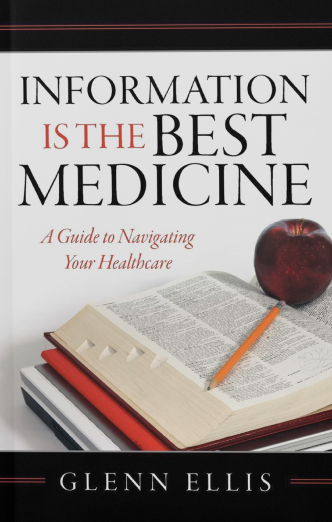As health-reform continues to take effect over the next several years (in one way or the other), millions of newly insured Americans will gain access to a regular doctor. They will soon learn what others already know: Getting the best care from your doctor requires navigating a complex relationship within the precious few minutes during a typical office visit.
 One thing that all of us should understand is the enormous demands on your doctor’s time. Every day, people just like you are planning to go see the same doctor that you are, and expecting to be treated like they are her/his most important patient.
One thing that all of us should understand is the enormous demands on your doctor’s time. Every day, people just like you are planning to go see the same doctor that you are, and expecting to be treated like they are her/his most important patient.
Do you ever feel like your doctor isn’t really listening? Or that he/she doesn’t review notes when meeting with you. Or maybe you are wondering what even goes into the notes?
Between 40 percent to 80 percent of medical information provided by care providers is forgotten immediately, and the greater the amount of information shared the greater the percentage forgotten. That’s huge, and that lack of retention has negative impacts on patient understanding, adherence and outcomes.
People best take in information presented in two ways: verbally and visually. Studies have found that when medical instruction was provided verbally, only 14 percent of the information was retained, versus 80 percent when a visual accompanied with text was provided.
Teaming up with your doctor means helping him or her to do the best job possible in treating you. That might mean jumping in and doing a quick review to make sure your doctor is up-to-date on what you told him/her and what they told you during the last visit. It might also mean correcting your doctor when he/she is in error.

Here’s how:
Review what you think you heard during the last appointment. Give your doctor a brief summary of where you are to date. It can save a lot of time and frustration for you and your doctor. You can say something like: “I just want to touch base on where we are on _____________. During our last appointment, you said _____________ and as a result I _________________. Are you still comfortable with that?” This approach has a couple of benefits. The first, of course, is that you help assure you are going to get accurate and appropriate recommendation. The second, less obvious benefit, is that give your doctor an out if he/she has forgotten what was said.
Jump in and make a correction. As the saying goes, when you see something, say something! You can do this without being confrontational. Smile and say, “Actually, I heard it another way and I want to make sure we are in sync. I thought you told me to _________________ because _____________.”
Stated this way, you are not saying directly that your doctor is in error, but that there may have been a miscommunication. This isn’t about “sucking up” to your doctor, but it avoids putting your doctor on the defensive, and promotes the type of teamwork that should exist in a doctor/patient relationship. And keep in mind that the misunderstanding could have been on your end, especially if your doctor was moving faster than usual that day and didn’t explain things thoroughly.
Express your concerns if you feel your healthcare is at risk in any way. I am not intending to imply that you shouldn’t advocate for yourself. If your doctor’s contradictions or forgetfulness alarms you in any way, e.g. if you are absently-mindedly prescribed what you know to be a medication you should not be taking, then you have a right to make your doctor aware of your concern.
Take a direct approach: “I need to express a concern here. I know you have a lot of patients to see. But I am (allergic to, have had no results before from, etc.) that medication. We’ve talked about it before, and it should be in my file. I get worried when I feel like you aren’t giving me your full attention.” You’re helping your doctor to do his/her job better.
Remember: Patience is a virtue. But up to a point. There is a fine balance between helping your doctor keep things straight and putting up with forgetfulness or lack of attention that can be harmful to your health. It’s up to you to decide when the line has been crossed. As always, be your own best advocate.
Don’t hesitate to take the lead to make sure you’re on the same page. Helping your doctor to do his/her job benefits both of you.

Black doctor shaking hands with patient in hospital
Remember, I’m not a doctor. I just sound like one.
Take good care of yourself and live the best life possible!
The information included in this column is for educational purposes only. It is not intended nor implied to be a substitute for professional medical advice. The reader should always consult his or her healthcare provider to determine the appropriateness of the information for their own situation or if they have any questions regarding a medical condition or treatment plan.
